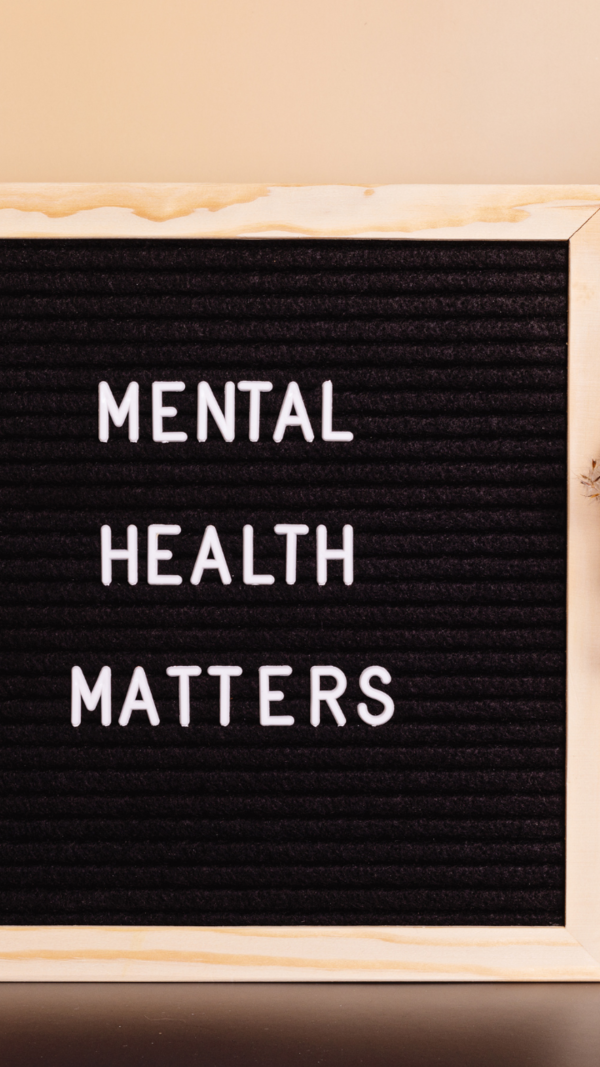A lot is being talked about
stress
and how to tackle it. Stress is like a vacuum that sucks you in, if you do not do something about it. Even as various avenues open up, the
impact of stress
continues to remain the same as there is less awareness around it. It’s time to heighten the awareness of stress, especially among the younger population. In this context, it is crucial to understand that stress is not just a feeling that comes when the situation is beyond control, it is, instead, a harmful imposition on both physical and mental health.
Stress levels are higher than before, because…
In today’s fast-paced world, stress levels are higher than ever due to a combination of societal, technological, and personal factors. One of the biggest contributors is the constant connectivity brought by technology. The rise of smartphones and social media means we are always “on,” bombarded with notifications, comparisons, and work-related tasks, leaving little time to unwind. Modern work culture often glorifies overworking and productivity, making people feel pressured to achieve more in less time. Economic instability, job insecurity, and the rising cost of living further exacerbate anxiety, making financial concerns a primary stressor for many.
Stress is an ignorant state. It believes that everything is an emergency. Nothing is that important. Just lie down.
Natalie Goldberg
Social isolation, though people are connected virtually, also contributes to this problem. Meaningful relationships are being replaced by superficial ones, making people feel lonely and unsupported. Furthermore, negative news cycles from climate change to global crises raise feelings of helplessness and fear. On a personal level, balancing career, family, and personal growth can be overwhelming. Stress is compounded in such an environment by the lack of self-care and mindfulness.
Stress makes you believe everything is important and urgent
Stress creates a state of heightened urgency by engaging the fight-or-flight response of the brain, where everything becomes urgent and time-sensitive. This physiological reaction loads the body with adrenaline and cortisol, which narrows concentration and judgment. Routine or small tasks become significant, causing people to overthink and become unable to distinguish between important and unimportant. Stress deceives the mind into believing that everything requires action at once, keeping it in an overwhelmed state at all times.
Stress is powerful enough to alter your hormones
According to Dr. Gorav Gupta, Senior Psychiatrist & CEO, Tulasi Healthcare New Delhi, “the most significant effect of stress is on mental health as well as physical wellbeing. Chronic levels of stress stimulate the body to release hormones such as cortisol and adrenaline, typical of the “fight or flight” response. Many health problems may arise from consistently elevated amounts of these hormones. Physically, stress can result in heart diseases, headaches, high blood pressure, weakened immunity, and digestion problems. Further, it might worsen any pre-existing diseases such as asthma and diabetes. Mental results of stress include anxiety, depression, inability to sleep, and difficulty in concentrating. Behaviorally, stress may lead to smoking, overeating, or binge drinking, which are all habits that can exacerbate health problems. If left unchecked, stress may eventually enter a vicious cycle of mental and physical problems.”
Stress is an invisible health disturber
As per Dr Geeta Shroff, Co- Founder Lighthouse Counselling Center, New Delhi, “stress, in my view, is an invisible health disturber. It results in a line of hormonal alterations and acts like a storm in the body and brain. When such changes keep persisting, it would influence brain performance and give way to anxiety, irritation, and fatigue. Stress can harm the heart physically, compromise immunity, and lead to digestion issues. Staying updated about how tension affects relationships, judgment, and self-worth which altogether contribute to a general sense of wellbeing is hard to remember in itself. To handle stress takes more than de-stressing or just relaxing as that includes the definition of stressors, building up emotional strength and finding support. Tension will only be managed to turn the pressure into opportunity if done successfully.”
You must learn to let go. Release the stress. You were never in control anyway.
Steve Maraboli, Life, the Truth, and Being Free
“Mental health and heart health are two sides of the same coin. Depression and loneliness aren’t just feelings—they cause measurable changes in your body. For instance, depression often leads to unhealthy behaviors like overeating, smoking, or skipping exercise. But it also directly affects the body by increasing inflammation and stress hormone levels, which can harm the heart. Social isolation has a similar effect by depriving you of the emotional support needed to cope with life’s challenges. Studies show that these factors increase your risk of heart disease as much as traditional risks like high cholesterol or smoking,” says Dr. Salil Shirodkar, Senior Consultant, Interventional Cardiology, Nanavati Max Super Speciality Hospital, Mumbai.
Unimaginable impact of stress on the body
When stress becomes chronic, the constant release of stress hormones like cortisol and adrenaline disrupts the body’s natural balance. This overactivation weakens the immune system, making you more susceptible to infections and illnesses.
Experts recommend healthy eating, adequate sleep, regular exercise, and stress management techniques like cognitive-behavioral therapy to counteract chronic stress’s harmful effects on heart health.
Stress in the cardiovascular system elevates blood pressure and heart rate, thereby increasing the chances of heart attacks, strokes, and other heart-related problems. It also leads to chronic inflammation, which is associated with diseases such as diabetes and arthritis.
3 exercise to bring happiness
The digestive system is not spared either. Stress leads to stomach ulcers, irritable bowel syndrome (IBS), and acid reflux. Appetite may fluctuate, causing weight gain or loss.
If you want to conquer the anxiety of life, live in the moment, live in the breath.
Amit Ray, Om Chanting and Meditation
This can be extremely detrimental to the brain, impairing memory, focus, and decision-making skills while increasing anxiety and depression potential. Over time, this can shrink the hippocampus, which is that part of the brain dealing with learning and memory. Physical stress causes headaches like tension headaches and migraines, and muscle pain, with troubled sleep leading to fatigue and a weakened ability to cope.
“Stress acts like a lightning on your heart”
Dr. Salil Shirodkar explains: Stress isn’t just an emotional state—it rewires your body, affecting your heart directly. When you’re stressed, your brain signals the release of stress hormones like cortisol and adrenaline. These hormones prepare your body for a ‘fight or flight’ response, increasing your heart rate and blood pressure. If this happens repeatedly or over a long period, the constant strain on your blood vessels can lead to plaque buildup in your arteries (atherosclerosis). This process narrows the arteries, reducing blood flow to your heart, and increasing the risk of heart attacks and strokes. Think of it like overusing a rubber band—it loses its elasticity over time.
Taking care of your mental health is essential for overall well-being. Simple habits in a positive direction will decrease stress, promote emotional balance, and bring about a healthier, happier mindset.
“Acute stress acts like a lightning strike on your heart. When faced with a sudden, intense stressor—like losing a loved one or being in an accident—your body releases a surge of adrenaline. This can cause your heart to beat irregularly (arrhythmia) or even mimic a heart attack in a condition called Takotsubo cardiomyopathy, or “broken heart syndrome.” In this state, the heart’s pumping function weakens temporarily, making it harder to circulate blood efficiently. While this condition is usually reversible, it highlights the immediate and dramatic impact stress can have on your heart,” he adds.
Are you struggling with stress?
It’s time we recognise stress and learn how to nullify its impact.
#Lifelineseries: Why are so many Indians stressed today?
The first step to managing stress is understanding what’s causing it. Take some time to reflect on your life and pinpoint the root causes. Is it work pressure, financial struggles, relationship issues, or health concerns? Writing down your stressors in a journal can help you analyze them and identify patterns. Once you know what’s triggering your stress, you can begin to address it more effectively.
In times of stress, the best thing we can do for each other is to listen with our ears and our hearts and to be assured that our questions are just as important as our answers.
Fred Rogers, The World According to Mister Rogers: Important Things to Remember
Stress activates the body’s fight-or-flight response, but relaxation techniques can help you counteract this reaction. Practice slow, deep breaths that lower your heart rate and calm your nervous system. Inhale for 4 seconds, hold for 7 seconds, and exhale for 8 seconds. Spend 10-15 minutes each day on mindfulness meditation to clear your mind and reduce anxiety.
Exercise is the most effective anti-stress strategy. Physical exercise helps to break down endorphins—natural mood enhancers. They help keep cortisol levels lower. Try for at least 30 minutes of exercise on most days of the week. Activities such as walking, yoga, swimming, or dancing are fun and also good for the body. Light stretches or brief spurts of activity can be effective, too.
You don’t have to face stress alone. Talk to trusted friends, family members, or colleagues about your feelings. Sometimes, talking about your struggles can help you feel better and gain a new perspective. If the stress persists, you may want to consider professional help from a counselor or therapist. They can work with you to develop coping strategies for your situation.
I’m Manas Ranjan Sahoo: Founder of “Webtirety Software”. I’m a Full-time Software Professional and an aspiring entrepreneur, dedicated to growing this platform as large as possible. I love to Write Blogs on Software, Mobile applications, Web Technology, eCommerce, SEO, and about My experience with Life.







